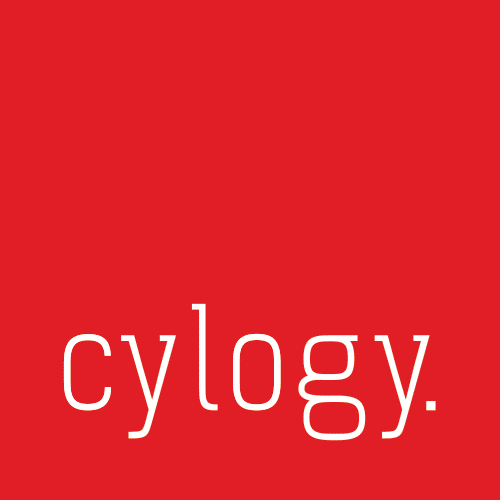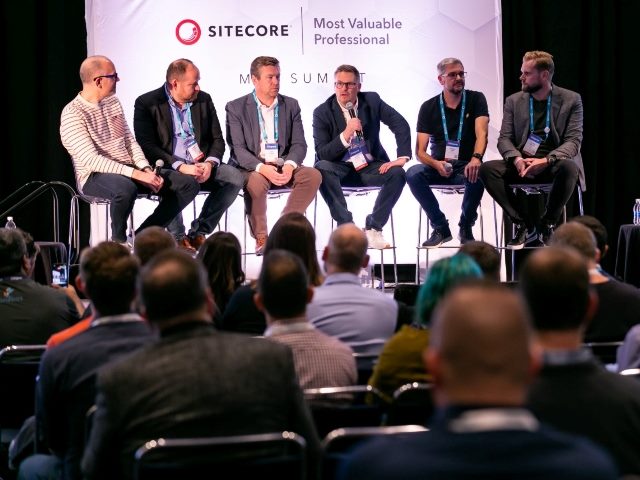This year’s Sitecore Symposium packed in a lot. The return of Sitecore’s flagship community conference to a physical space in Chicago was always going to be an opportunity to make some new announcements, and also promote the deep changes to the platform over the past couple of years. This was reflected in the high number of sessions packed into a busy two and a half days covering keynotes, breakout sessions and shorter lightning talks, from a mixture of Sitecore employees, partners and customers.
Here are five of my takeaways from the 2022 Sitecore Symposium.
1. It Was Great to Be Back In-Person
I was always looking forward to returning to a full face-to-face conference with the opportunity to catch-up with old faces and meet new friends. The Symposium absolutely didn’t disappoint; it was good to be back. I think many of us felt the same way, and enjoyed the social side. There is something joyous being back in the room (or bar) with others from around the US and beyond.
The event organizers did a great job in organizing an ambitious schedule and keeping the keynotes slick, while the physical distance between the different elements of the conference were quite compact. It felt more like a village where you keep on bumping into people you know, and less like an impersonal trade show.
2. 3 New Product Announcements Support a Composable Future
Everybody loves to hear what Sitecore has planned for its roadmap, and we got three product announcements, all of which are SaaS-based, cloud-native offerings:
- Content Hub One: a new lightweight headless CMS that is partly based on the content marketing functionality within Content Hub, and offers a more streamlined (and likely cheaper) alternative to Sitecore XM Cloud.
- Sitecore Search: a new AI-driven search tool derived from the acquisition of Reflektion that provides various features and is available on a “plug and play” basis and can easily be added to any website. It’s also bundled with Content Hub One.
- Sitecore Connect: a low code aggregator platform with a drag-and-drop interface that will include thousands of connectors and even more community-driven recipes to integrate Sitecore and non-Sitecore products together, lowering the barriers to creating a composable DXP.
All three products in their own way add value to the overall platform, but also hint at potential future directions of the platform. The “plug and play” aspect and easy deployment of Sitecore Search, the creation of an entry-level headless CMS to appeal more to mid-market organizations, and the Connect aggregator tool give non-IT professionals more power over composable architecture.
3. An Announcement With Accenture May Get a Mixed Reaction
One of the major announcements at Sitecore was a new partnership with Accenture, building on an existing strong relationship that has already delivered on over 250 engagements. Given Accenture’s normal client base, this is clearly focused on delivering Sitecore to Fortune 500 or equivalent companies; an aim confirmed by Sitecore CEO Steve Tzikakis in the subsequent press release where he is quoted as saying the partnership will “bring us close to the world’s largest and most sophisticated brands.”
The partnership sounds like good commercial sense and a good fit especially as Accenture already owns over half of Avanade, which does many Sitecore implementations. It’s possible that this new partnership may put the nose out of joint of existing larger Sitecore partners who do work with bigger brands. As already noted in my recent post, this could potentially be seen as going against previous commitments by Sitecore not to compete against its partners.
4. The Future of the PaaS Version of Sitecore Is Unclear
Until it revealed its cloud native and composable strategy back in 2020, Sitecore was always a highly integrated offering available on a Platform-as-a-Service (PaaS) basis. In practice many clients still use Sitecore on that basis, also reflected in its licensing model. To a certain extent, the elephant in the room is how long will Sitecore support its former version and keep on releasing new versions?
At Symposium there was confirmation that we will get versions of 10.3 and 10.4 of Sitecore Experience Manager, the PaaS-based CMS that is at the heart of Sitecore. But beyond this there hasn’t been confirmation that we will see 10.5 or beyond, which leaves something of a question mark hanging over its future. In some of the discussions I had, I detected a desire for more clarity around this question from both practitioners and partners, as well as some excitement about moving to the cloud-native version of the platform.
5. Questions About Speed, Cost of Migration to SaaS
Many sessions at Symposium focused on using the SaaS products and switching to composable architecture with Sitecore at the center. It’s natural that Sitecore wants customers to start doing this and for partners to start helping with that process. What remains less obvious is the speed and cost of the migration.
At the moment the envisaged migration path to switching to Sitecore XM Cloud is by upgrading to version 10.3 first, from which you can then migrate. Given that many customers may be on versions of Sitecore of 9 or less, the migration could actually prove to be quite expensive. Alex Shyba, co-founder of Uniform, even proposed in a tweet that you could just stay on your existing version of Sitecore and deploy Uniform instead.
Also given that we are only getting versions 10.3 and 10.4 of Sitecore XM confirmed, that sounds like the switch to SaaS may need to be sooner than perhaps many are expecting. Given pressure to migrate at cost and at speed, some customers may choose to re-platform instead. Also given that many partners still don’t even have access to Sitecore XM Cloud yet, it feels like there is some work to do if Sitecore wants to galvanize partners in making the switch to SaaS happen at scale.
A Great Conference!
Despite some feeling more clarity is needed over the migration path to SaaS, the feedback from delegates I spoke to was very positive about Symposium. It was great to be back, and I’m looking forward to the 2023 event.



